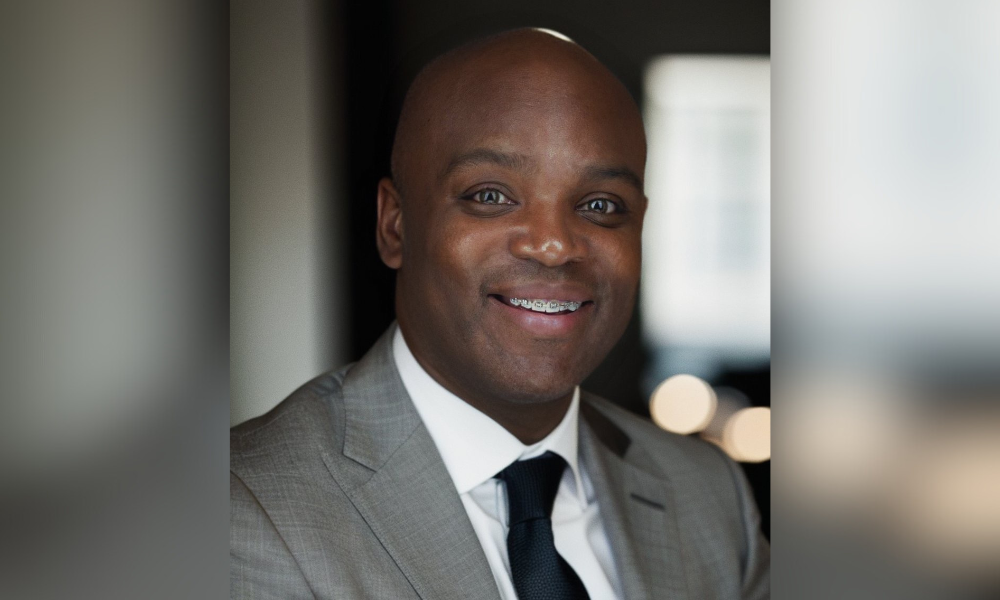Interest remains strong among California residents

As eyewatering home prices continue to push housing affordability out of reach for many California buyers, plenty appear to be turning their attention to the Las Vegas market – a trend that’s been evident since the COVID-19 pandemic took hold.
Los Angeles and San Francisco residents made up the two most prominent homebuyer types moving into Vegas from other metro areas, according to real estate data from March to May, with San Diego rounding out the top four beneath Seattle.
That interest is continuing even as the number of homes sold in Vegas ticked slightly downwards on a year-over-year basis, although the median sale price continued to climb thanks to ongoing inventory challenges.
Lamont Harris Jr. (pictured top), president and chief executive officer at the Vegas-based Harris Capital Mortgage Group, told Mortgage Professional America that the region had not been immune to the same supply scarcity evident throughout the US.
Still, that hasn’t stopped out-of-state buyers from weighing up a move to Vegas to take advantage of lower home prices than those in their own markets.
“I do see that we really have a shortage of inventory here – not just locally, but I’m seeing that as being a common trend across the nation,” he said. “What we’re seeing is families relocating here from California. That seems to be a continuing trend that has been pretty much [growing] post-COVID.
“A lot of families relocate here from Northern and Southern California. Most of them are working remotely, and then I’ve had an increase in the number of military families commuting from Southern California, from Fort Irwin, about two hours out of Vegas.”
What’s the outlook for first-time buyers?
A significant majority of those buyers moving to Vegas from California are first-time purchasers, Harris added, disillusioned with ever-climbing prices in the Golden State and focused on a switch to a more affordable market.
Still, with average home prices jumping by 7.3% in Vegas in May compared to the same time last year – and hitting the $440,000 mark – affording a property there is no easy feat.
While FHA loans have proven a net benefit for first-time homebuyers in Las Vegas, they’re not without their downsides, according to Harris.
“FHA has been [helpful], but over the last 12 months we’re seeing a trend in prices increasing in Vegas,” he said.
“The FHA loan limits do put a dampener on things a bit because a lot of people that are purchasing in some of the more popular school districts are seeing that the average home price has increased by more than 15% post-COVID. So the prices are just a little bit higher than what they were anticipating.”
Should buyers wait for rates to fall, or make a move now?
With mortgage rates remaining resolutely high, and the Fed staying the course for now by keeping its key rate unchanged, some buyers may be taking a wait-and-see approach to the current market and waiting for rates to dip before they enter the fray.
Mortgage applications rose for the second consecutive week as interest rates inched higher following the latest inflation data and Federal Reserve meeting. https://t.co/mvXkBLTTVs
— Mortgage Professional America Magazine (@MPAMagazineUS) June 19, 2024
That’s not necessarily the right move, Harris said, mainly because prices are likely to accelerate at a brisker clip than their current pace as soon as rates begin to fall.
“One of the things that we’ve been trying to do and be very intentional about is educating clients on how this could actually affect them over the coming months,” he said. “Whether it be 12 or 18 months, one of the things we want them to understand is that as rates drop, prices will continue to increase.
“I think the clients have been… wanting to move now and actually proceed rather than wait, so that’s good. What we’ve been telling clients all along is most of the investors in the space and the market didn’t anticipate the Fed to move much when they met last week, and they did not.”
Expectations of multiple rate cuts by the central bank before the end of the year have all but vanished, meaning borrowers should be prepared for rates to stay high for much longer than originally envisaged, according to Harris.
“They’re holding steady, which is something that we anticipated,” he said. “We understand that the Fed’s looking to get inflation closer to 2% before we really see any change there, and I don’t know that that happens between now and the end of the year, to be honest.”
Stay updated with the freshest mortgage news. Get exclusive interviews, breaking news, and industry events in your inbox, and always be the first to know by subscribing to our FREE daily newsletter.



